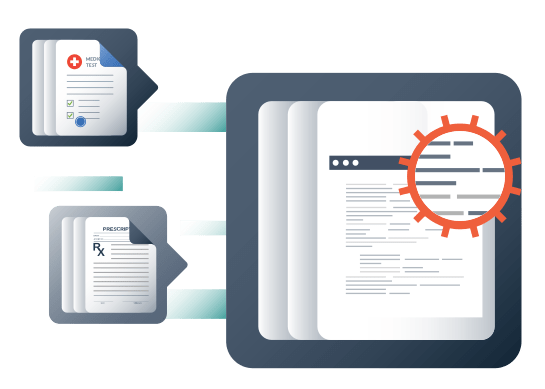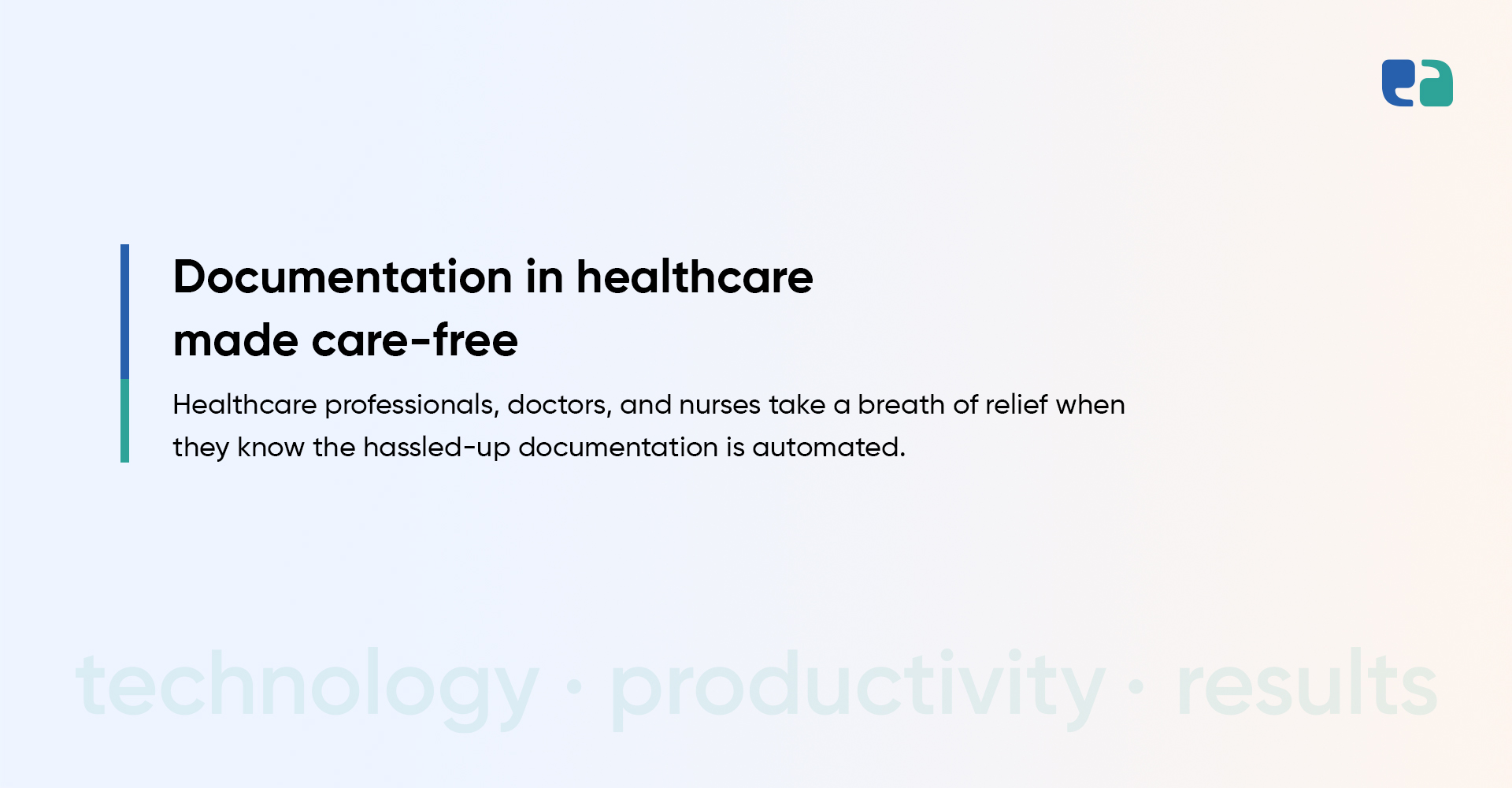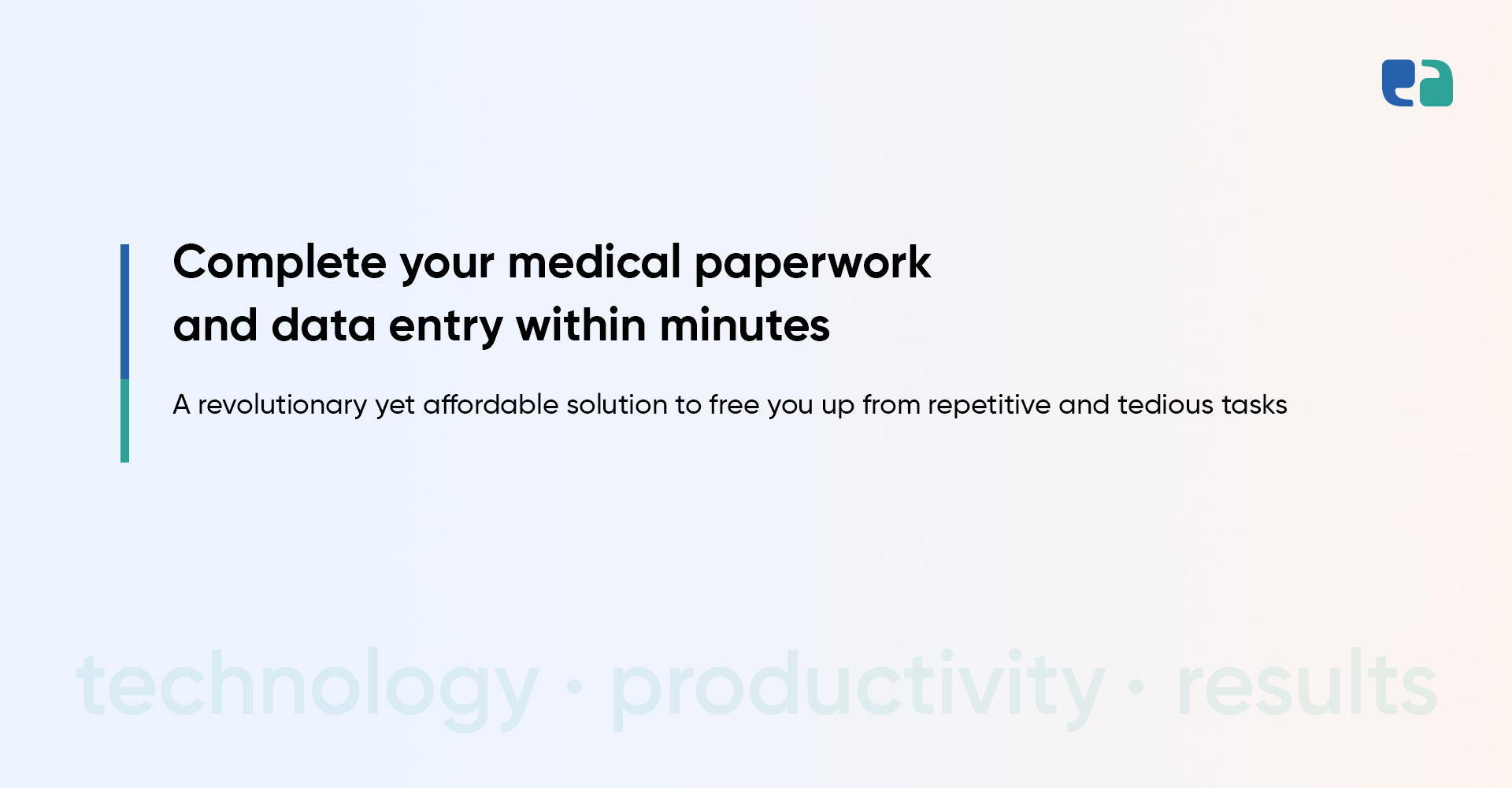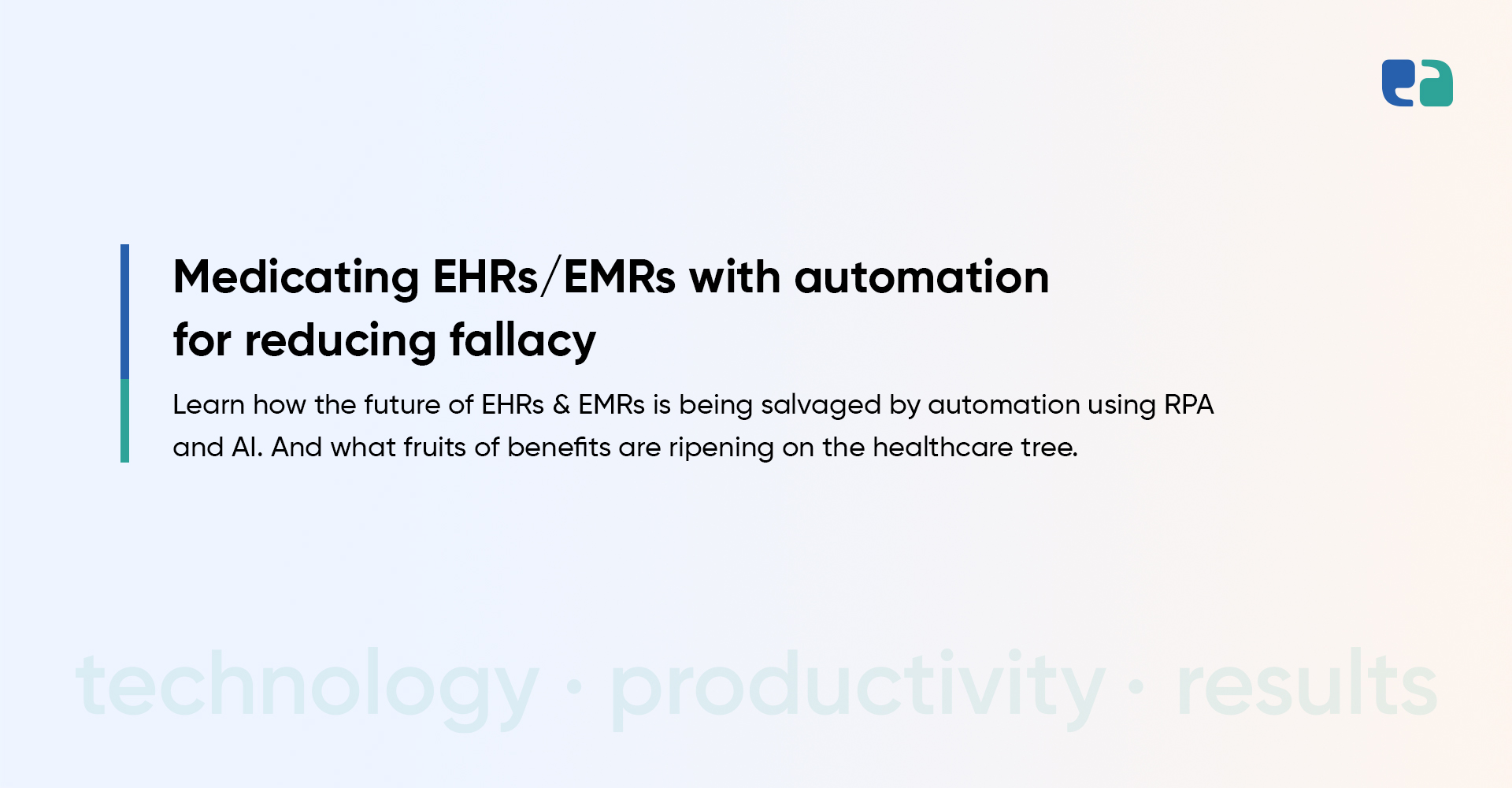Data in the current times is considered a goldmine.
The use of this resource can only be explored to its fullest potential when its accessibility inefficiencies are reduced.
According to a 2013 World Health Organization (WHO) report, the global healthcare professional shortage is expected to reach 12.9 million by 2035.
This situation can be seen prominently with the advent of this unexpected pandemic wave aggravating the whole situation.
In recent years, a surge of 6,000 percent in the use of telemedicine has strained medical workers who process claims manually, input data in electronic records, and communicate digitally with patients.
Telehealth and remote patient monitoring (RPM) solutions significantly reduce the load on the US health sector.
Well, the stigma never ends.
Hence, rising like a Phoenix from the ashes comes healthcare document automation because healthcare providers must focus on patients, not paperwork.
But what exactly is document automation in healthcare?
The answer is quite simple – healthcare document automation can detect and extract information from the documents with minimal human interaction, whether patient intake forms, identification cards, laboratory forms, or medical records.

Why Does the Healthcare Industry Need Healthcare Document Automation?
Technological advancements are always something to marvel at.
Specifically, in the healthcare industry, medical document automation technology can help promote efficiency in medical services.
Technologies Used to Automate Healthcare Document Processing
Earlier, as we told you, the two major players responsible for healthcare document automation are Robotic Process Automation (RPA) and Optical Character Recognition(OCR).
Leap Ahead with the Use of AI in Healthcare Document Automation
The processes of RPA and OCR are already automated in making healthcare documentation automated.
But they are not smart, which makes them prone to errors.
And with a profession such as healthcare, one can only expect loss and lawsuits of millions of dollars if any error in the documentation process causes even needle-pinched harm to patients.
Greg Lavender discussing new #AI tools to help healthcare providers with disease prediction, medical imaging diagnostics, and document automation.
Also great to hear about how AI is used to accelerate drug discovery and testing (biopharma R&D).#IntelON pic.twitter.com/5HWysTQPsJ— Olivier Blanchard 💬 (@OABlanchard) September 28, 2022
Delivering Effective Healthcare Document Automation Solutions for 8+ years = SyS Creations
We have been catering to healthcare-specific IT solutions for the past 8 years.
Our expertise in the field of integration, software development, and RPA automation is commendable as we serve only the healthcare industry and professionals.
So, your medical organization is looking to ripe the robotic overhaul.
We have a team of dedicated RPA experts who have experience and expertise in working with artificial intelligence and machine learning.
Not only that but when you associate with us to build IT in healthcare, you get a dedicated team of professionals with a focused work background in the healthcare sector.
However, if you don’t take our word, take a look at one of our successful case studies of a hospital for which we designed an AI-based management system and helped them save USD 1 million every year.



